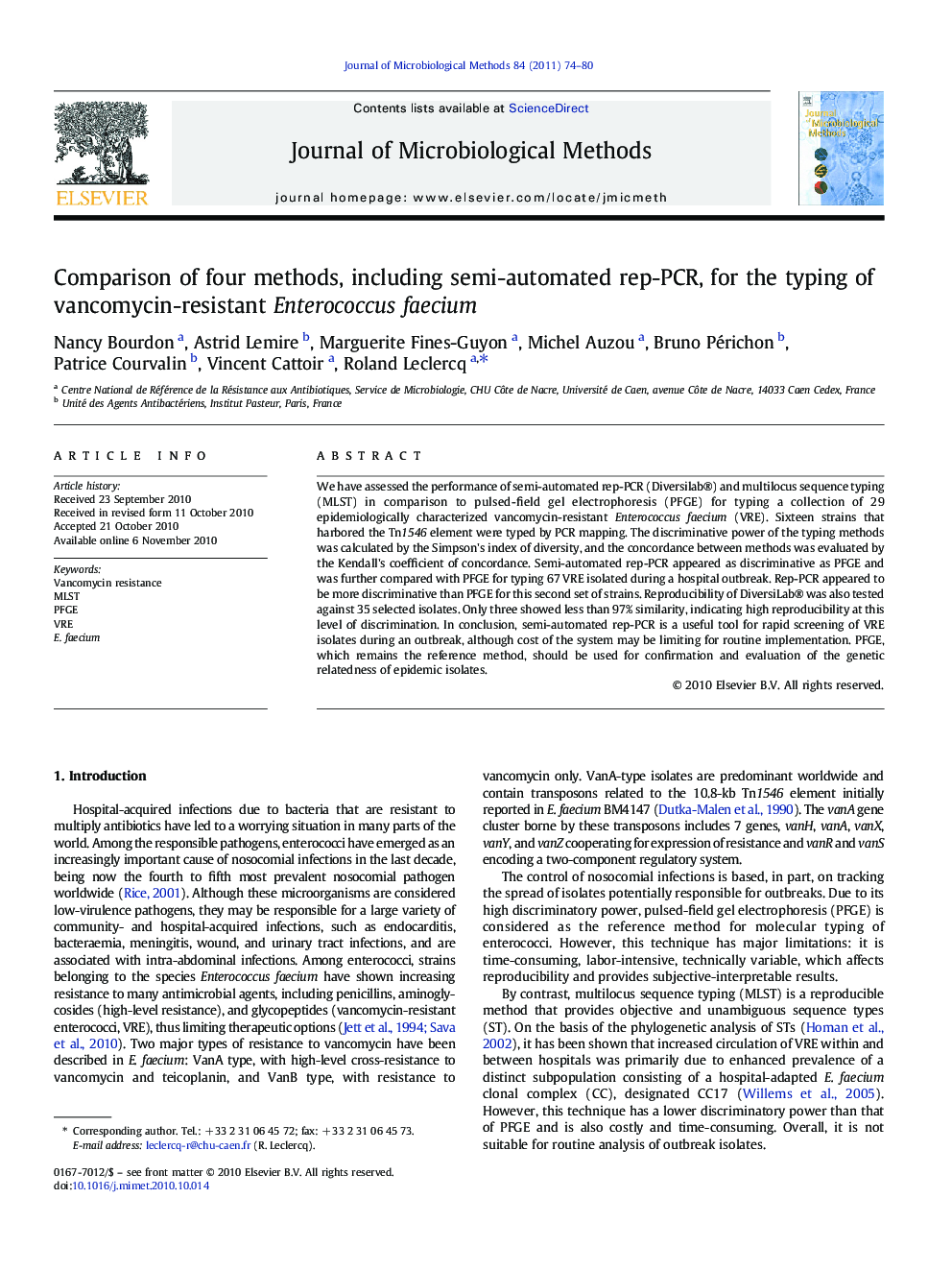| Article ID | Journal | Published Year | Pages | File Type |
|---|---|---|---|---|
| 2090356 | Journal of Microbiological Methods | 2011 | 7 Pages |
We have assessed the performance of semi-automated rep-PCR (Diversilab®) and multilocus sequence typing (MLST) in comparison to pulsed-field gel electrophoresis (PFGE) for typing a collection of 29 epidemiologically characterized vancomycin-resistant Enterococcus faecium (VRE). Sixteen strains that harbored the Tn1546 element were typed by PCR mapping. The discriminative power of the typing methods was calculated by the Simpson's index of diversity, and the concordance between methods was evaluated by the Kendall's coefficient of concordance. Semi-automated rep-PCR appeared as discriminative as PFGE and was further compared with PFGE for typing 67 VRE isolated during a hospital outbreak. Rep-PCR appeared to be more discriminative than PFGE for this second set of strains. Reproducibility of DiversiLab® was also tested against 35 selected isolates. Only three showed less than 97% similarity, indicating high reproducibility at this level of discrimination. In conclusion, semi-automated rep-PCR is a useful tool for rapid screening of VRE isolates during an outbreak, although cost of the system may be limiting for routine implementation. PFGE, which remains the reference method, should be used for confirmation and evaluation of the genetic relatedness of epidemic isolates.
